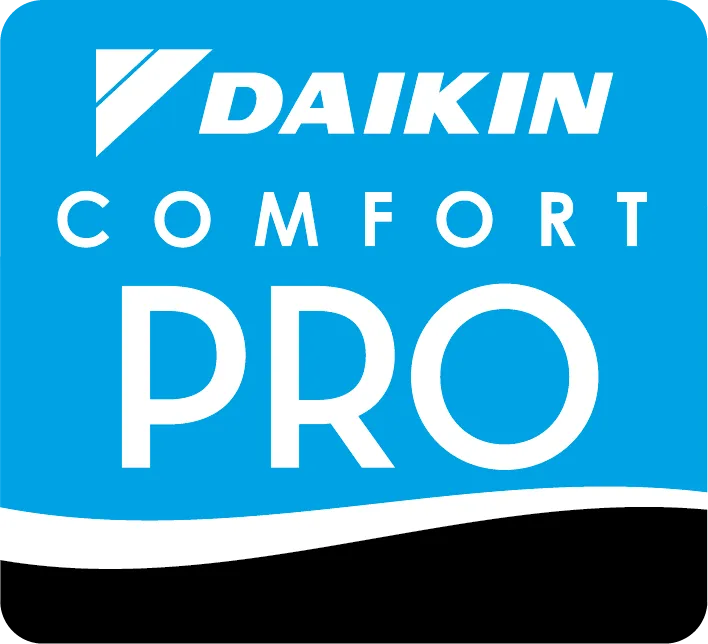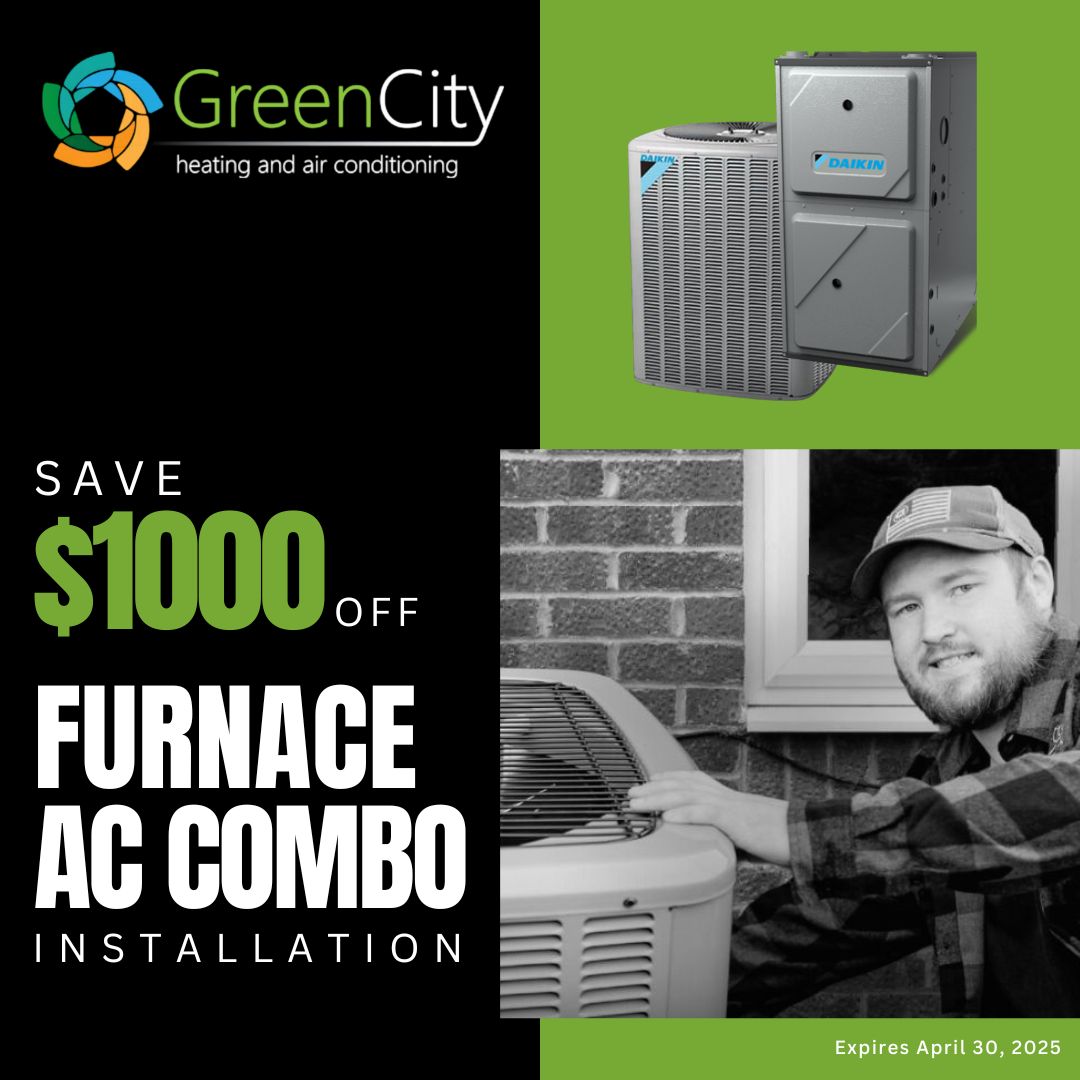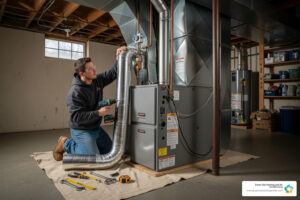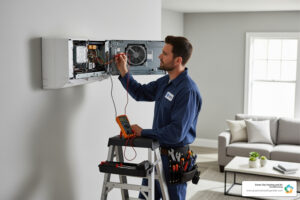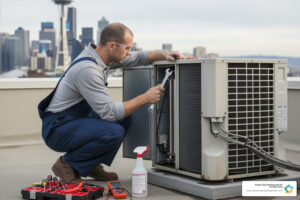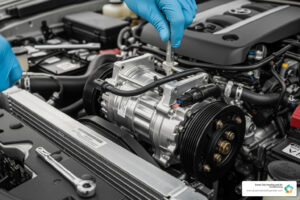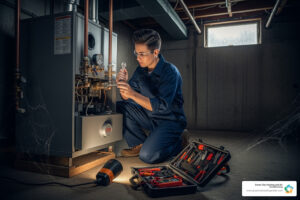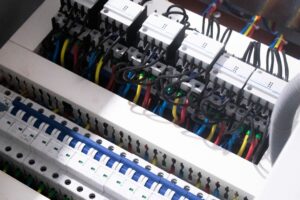When extreme summer heat takes over Auburn, it’s not uncommon for homeowners to notice that their cooling systems aren’t keeping up. Even though the AC unit may be running constantly, certain rooms stay warm, and overall comfort suffers. During a heat wave, these issues can become even more frustrating. If your air conditioner feels like it’s falling behind during the hottest days, it’s not necessarily broken, but it may not be working as efficiently as it should.
Understanding why your AC struggles during heat waves is the first step to getting better performance. There are several factors that contribute to poor cooling in high temperatures, and pinpointing those issues helps avoid long-term damage and discomfort. Whether it’s an older unit that can’t keep up, or a system that wasn’t set up for the size of the home, falling short during heat spikes is a serious concern that should be taken seriously.
Reasons for Poor Cooling Performance
Some AC systems falter when temperatures reach their peak, especially if the unit is already under stress. In Auburn, periods of extreme heat can create multiple challenges, and a system that’s already pushing its limits will begin to show signs of strain. The most common causes of poor cooling performance during these times include:
– Undersized AC units: If your air conditioner wasn’t properly sized for your home when it was installed, it may not be able to maintain a consistent indoor temperature on especially hot days. It will run longer and harder, but still fall short.
– Lack of maintenance: Over time, dust and debris collect inside the AC system. If filters are dirty or coils are clogged, airflow is restricted, and the system has to strain to cool your home.
– Aging equipment: Many older AC units lose efficiency as components wear down. If your system is more than 10 years old and hasn’t had consistent care, reduced cooling is likely.
– Leaky ductwork: Cool air can leak through poor duct connections before it ever reaches your rooms. That means longer run times and inconsistent results.
– Improper thermostat settings: Some homeowners unknowingly set the system in a way that works against efficiency. Using the fan incorrectly or not programming the thermostat can reduce cooling when it’s most needed.
A good example of this in a typical Auburn home might be running a 15-year-old air conditioner all day during a spike in outdoor temperatures, only to realize the house still feels warm by midafternoon. The system isn’t cutting it anymore, not because it’s completely broken, but because it’s falling behind due to age and buildup. These performance drops are often gradual, so it takes a heat wave to even notice there’s a problem.
Impact Of Heat Waves On AC Systems
Heat waves aren’t just a challenge because of outdoor temperatures. They also impact how your AC system functions internally. These periods of sustained heat push AC units to operate for much longer cycles. That extra demand causes several performance issues.
1. Prolonged run times
During heat waves, your AC might run nonstop to keep your indoor temperature stable. This strains all components, such as compressors, fans, and electrical parts. The longer the system runs, the more likely something inside will wear or overheat.
2. Temperature differential
Air conditioners are designed to cool indoor air by only a certain number of degrees. When outdoor temperatures soar far beyond usual, the unit reaches its limit. It stops making noticeable progress, and indoor cooling slows down.
3. Increased humidity
Hot days in Auburn can come with high humidity levels. Air conditioners help cool and reduce moisture, but when humidity rises, it becomes harder for the system to work efficiently. High humidity causes damp or clammy airflow, even if the AC is functioning normally.
4. Clogged condensate lines
With more moisture in the air, the AC produces more condensation. If the drain line isn’t clear, this extra water can cause shutdowns or reduced airflow.
5. Component overheating
When cooling systems don’t get a break, some parts, like the compressor and capacitor, run hot. That can trigger safety shutoffs or cause breakdowns, especially in older units.
These effects don’t always show up with regular usage but can reveal themselves when the AC is pushed to full capacity for several days in a row. If you’re seeing weak airflow, loud operation, or inconsistent temperatures after a heat wave, your AC may have taken a hit from the recent overload. Addressing these issues before the next temperature spike is key to keeping your home comfortable throughout the season.
How Regular Professional Maintenance Improves Cooling
Once heat waves roll into Auburn, your AC system has to work harder than usual. If it’s not maintained regularly, it can slow down, use more energy, and even break down. Regular professional maintenance helps prevent this. When our technicians inspect and tune up your unit, they clean key components, test for early signs of problems, and make adjustments that improve performance.
For example, when the evaporator coil collects dirt, your AC can’t absorb heat well. That forces the unit to run longer, driving up both energy use and the risk of a breakdown. During a professional inspection, our technicians check the coil, clean it fully if needed, and confirm that airflow is moving freely. This kind of cleaning isn’t possible with household tools. It requires expert care using proper methods and equipment.
Technicians also test refrigerant levels, inspect wiring and connections, and review thermostat settings. These steps help your system run correctly and lower the chance of damage during high temperatures. Without this basic maintenance, your unit might seem fine during a short stretch of heat but fail when the next wave hits.
Tips To Maximize Cooling Efficiency During Heat Waves
Keeping your home cool during a heat wave comes down to more than just hoping your AC holds up. Homeowners can take steps to support system performance and hold onto as much cool air as possible. These changes don’t replace professional service, but they do help the system work more efficiently.
Use the tips below to help maintain comfort during extreme heat:
– Keep blinds and curtains closed during the hottest parts of the day to reduce heat gain through windows. Direct sunlight can drive up indoor temperatures quickly.
– Check your air filter every month in the summer. Replace it if it looks dirty to improve airflow and cooling strength.
– Avoid using heat-generating appliances like ovens or dryers during the afternoon. Try early mornings or evenings when outside temperatures have dropped.
– Seal gaps around doors and windows with weather stripping or caulk. This helps keep hot air out and cold air in.
– Set your thermostat a few degrees higher when you’re not home. Smart thermostats can help do this automatically.
– Use ceiling fans to help circulate cool air more evenly. Make sure the blades are rotating counterclockwise during summer.
– Keep vents clear of furniture and rugs. Blocked vents reduce air circulation and affect how well the entire system cools.
Each of these steps works hand-in-hand with a properly functioning AC system. They can’t fix deeper mechanical issues but do help lighten the load your unit carries during extremely hot stretches.
Ensuring Peak Performance From Your AC Service In Auburn
Heat waves will keep coming, and each one puts more pressure on your cooling equipment. If your AC hasn’t been inspected, is aging, or shows signs of slowing down, those conditions will only get worse during high temperatures. Weak airflow, poor cooling performance, and longer run times aren’t just side effects of hot weather — they’re signals that your system could be under strain or in need of repairs.
Staying ahead of these problems helps avoid full breakdowns, high energy bills, and uncomfortable rooms during the hottest periods of the summer. That requires a combination of preventive maintenance and professional evaluation. Whether your current unit’s struggling due to age, buildup, or poor insulation in your home, addressing the root issue sooner can help bring performance back on track.
Proper AC service in Auburn starts with understanding how your system responds to the weather. Once that’s clear, the next step is to take action that helps prevent bigger problems and ensures lasting comfort through every heat wave and beyond.
At Green City Heating and Air Conditioning, we know that keeping your AC in top shape when temperatures soar in Auburn is essential for a comfortable home. Regular maintenance eases the strain on your cooling system and helps prevent unexpected failures during peak heat, so investing in AC service in Auburn can make all the difference. For a quick estimate or to book a service visit, please contact us today.
